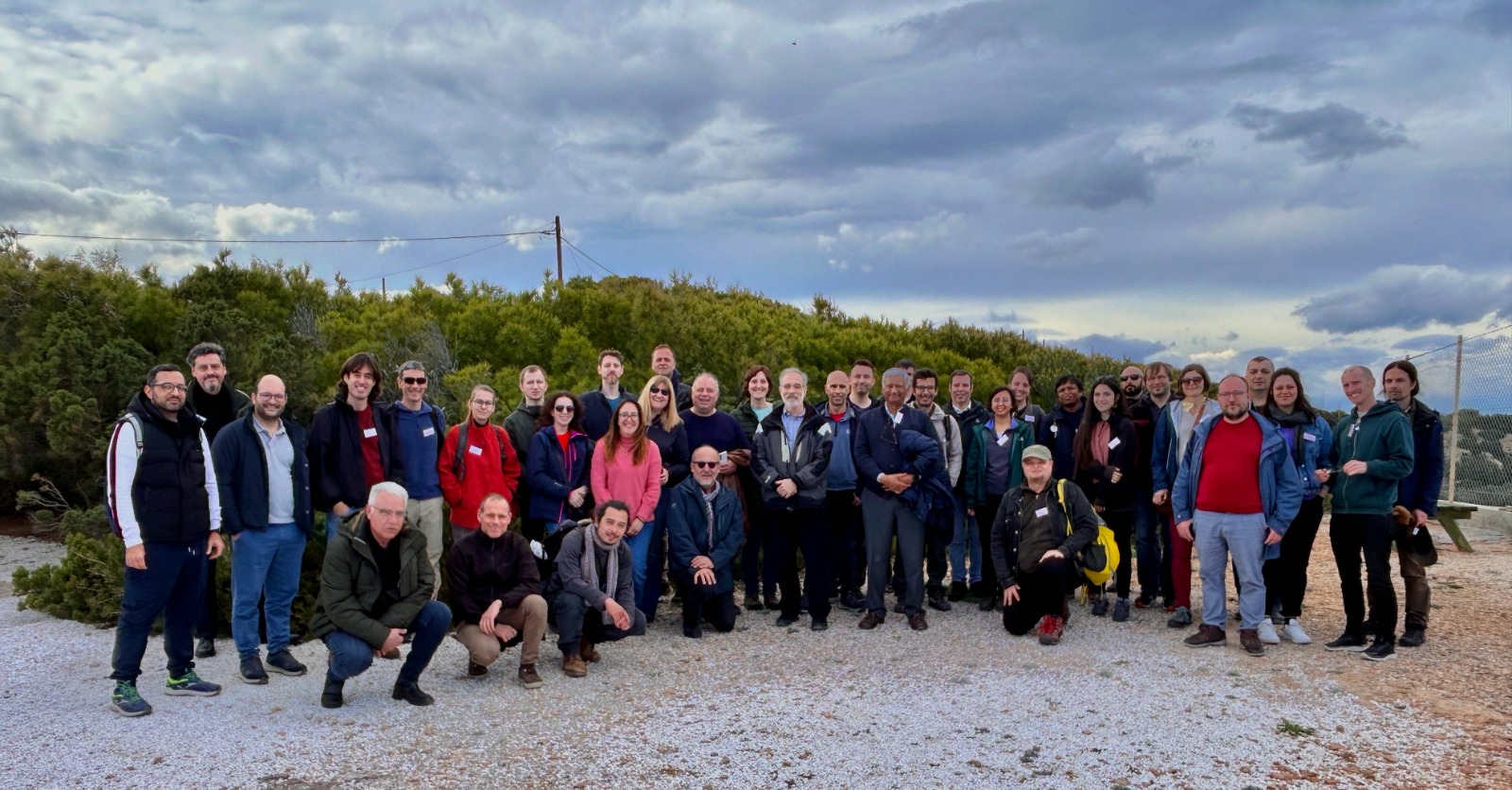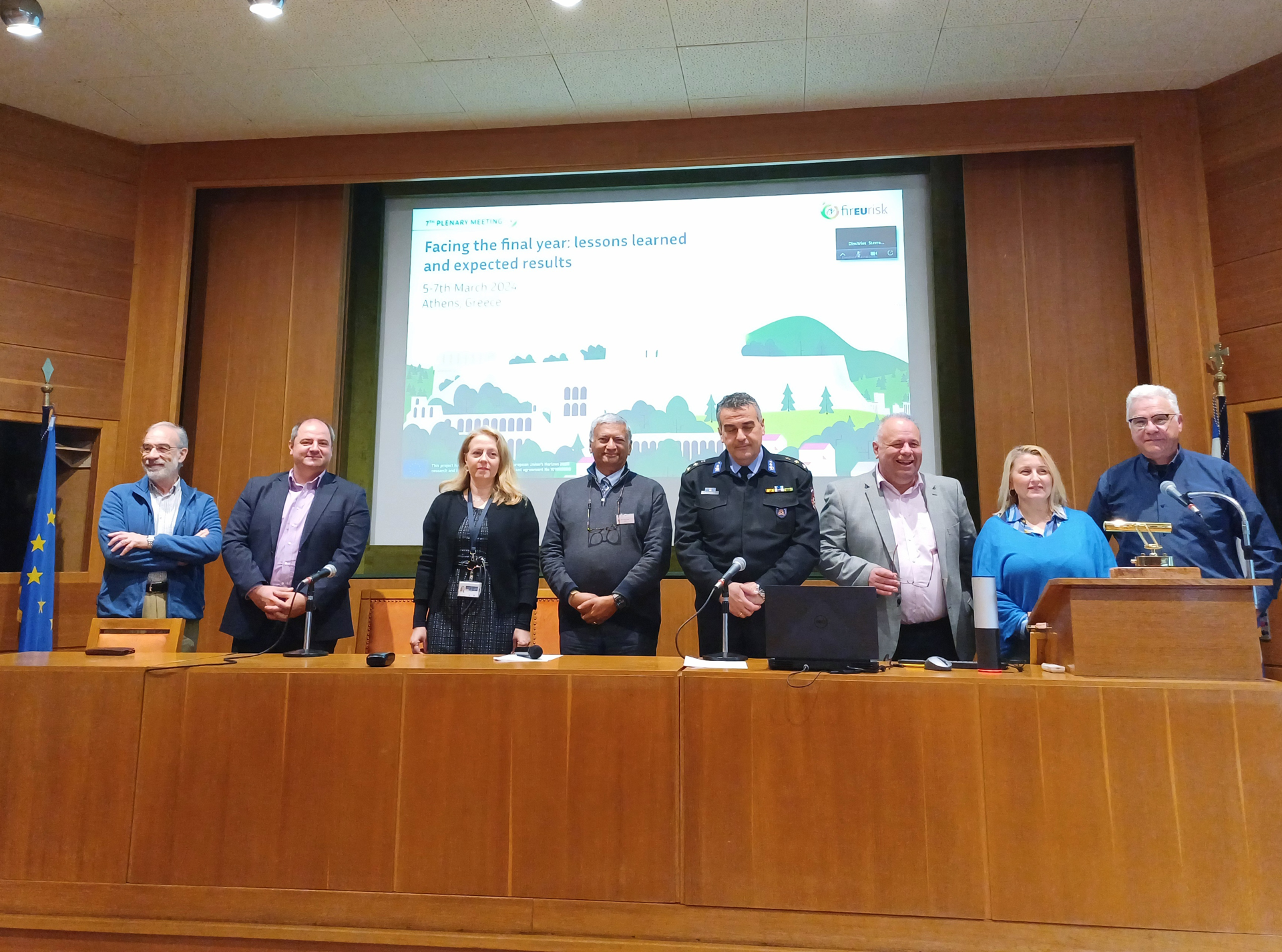Facing the final year: Lessons learned and expected results
The FirEUrisk consortium came together at the beginning of March for our biannual general meeting in Athens, Greece. Following three years of dedicated effort, all project partners were enthusiastic to share updates and discuss expected outcomes. As the project enters its final year, a key objective is the dissemination and communication of developed tools and products.

Concluding the project’s third year, our 7th plenary meeting provided the right opportunity to plan for a year of concentrated efforts. The meeting focused on sharing and assessing the substantial and fruitful work accomplished thus far, paying special attention to the lasting impact FirEUrisk aims to have on researchers, first responders, political leaders, and other stakeholders.
In his opening remarks, FirEUrisk coordinator Professor Domingos Viegas reflected on the project’s inception, which was prompted by the events in Portugal in 2017 and echoed in Greece just a year later. “FirEUrisk was born out of the need to understand all the components of fire risk, to ensure comprehensive coverage and leave no stone unturned,” he stated.

Navigating extreme fire behaviour ahead
Throughout the two-day meeting, representatives from all partner institutions offered progress updates on various project tasks. We explored the lessons learned from the Central Portugal and the Central Europe demonstration events, focusing on participant feedback and its implications for the success of the upcoming demonstrations that will be taking place this year.
Strategies and tools developed by FirEUrisk, such as the fuel map, are already in use by numerous other research projects. The current challenge lies in engaging with first responders, facilitating the transfer of our research findings to firefighters, and fostering collaboration between the scientific community and various local and European fire agencies to enable the sharing of the latest information and tools.
Taking measures after the flames
In addition to the presentations of project progress, partners had the opportunity to visit the Mati area, in Rafina, which bore the brunt of the wildfires during the 2018 European heatwave in the Attica region around Athens. These fires, raging fiercely on the wildland-urban interface (WUI), had a profound impact on the interface between human development and uninhabited land.
Regarded as one of the most devastating fire disasters of the 21st century, this tragedy claimed more than 100 lives and spurred the Greek government to take action to improve its fire management services at both local and national levels.
We were honoured to listen to keynote speeches from executives of Greek government agencies: Efstathios Stathopoulos, Secretary General for Forests at the Ministry of Environment and Energy; Konstantinos Karantzalos, Secretary General of Telecommunications and Posts at the Ministry of Digital Governance; Ioannis Kouinelis, Lieutenant Fire Colonel at the Hellenic Fire Corps; and Efstathia Athinaiou from the Ministry for Climate Crisis and Civil Protection, who provided valuable insights into the country’s latest fire management strategies.
A heartfelt thank you to our guests, all attendees, our partners from the Aristotle University of Thessaloniki for their excellent organization, and to the Institute of Mediterranean Forest Ecosystems for graciously hosting the event.
